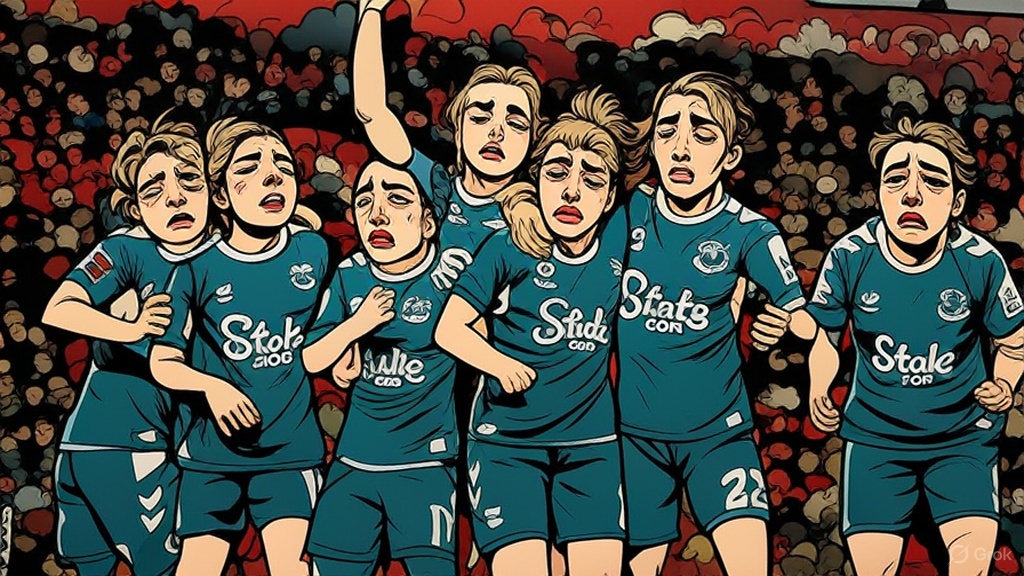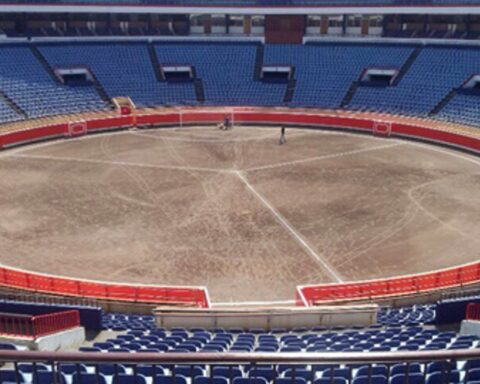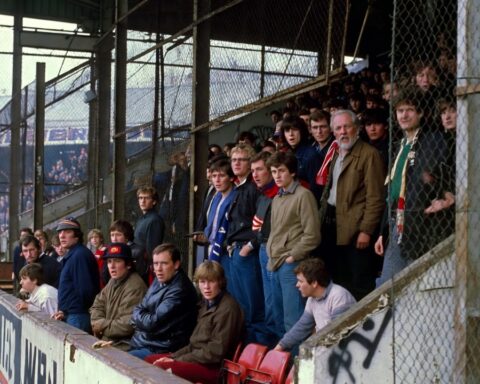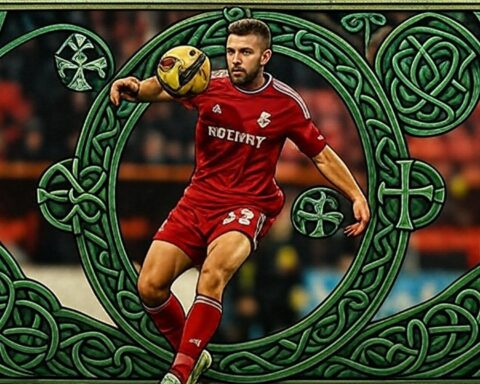The Premier League, that grotesque carnival of excess, has once again peeled back its veneer of sporting purity to reveal a writhing underbelly of financial chicanery. The stench is familiar now.
Everton, those perennial scrappers from Merseyside, have joined the ranks of Chelsea and Aston Villa in a rotten game of fiscal hopscotch, selling their women’s team to a sister company to dodge the Profitability and Sustainability Rules (PSR).
This isn’t football; it’s a mafia racket involving the souls of clubs, where the chips are women’s teams, youth academies, and the last scraps of integrity.
The mechanics are laughably transparent. Revalue the women’s team as a seven-figure asset, sell it across to a sister entity, bank the “profit,” and voila—you’ve got PSR breathing space to sign more players. It’s alchemy for the bean counters, but pure farce for the rest of us.
Everton join the skullduggery
Everton’s decision to offload their women’s team to Roundhouse Capital Holdings, a company controlled by their owner Dan Friedkin, is a masterclass in creative accounting.
The deal, reportedly worth around £60 million, mirrors the playbook of Chelsea and Aston Villa, who’ve already cashed in on their women’s teams to sidestep PSR’s financial guillotine.
Chelsea, under the shadowy aegis of BlueCo, their parent company, raked in a staggering £128.4 million pre-tax profit last year by “repositioning” their women’s team.
Aston Villa, not to be outdone, sold their women’s side to V Sports, a holding company above their men’s team, pocketing a tidy sum to keep their PSR books balanced.
Everton, staring down the barrel of a potential breach, followed suit, transferring their women’s team to a related entity to generate a paper profit that lets them splash cash on new signings while keeping the Premier League’s bean counters at bay.
Let’s call this what it is: a shameless hustle. These clubs aren’t selling their women’s teams to foster growth or attract investment, as their press releases piously claim.
They’re exploiting a loophole so wide you could drive a fleet of gold-plated Bentleys through it. The Premier League’s PSR rules, designed to ensure financial stability, have instead birthed a mutant economy where clubs sell their own assets to themselves, booking fictitious profits to mask their overspending.
The women’s teams, already underfunded and undervalued, become pawns in a game where the only winners are the accountants and the owners who treat football like a Monopoly board.
Premier League nooses and loopholes
The Premier League tried to stop this. In June, a proposal to close the loophole was tabled. But football, predictably, eats its tail.
The clubs themselves—those very same culprits profiting from these inter-company gymnastics—voted the measure down.
It’s akin to asking a fox if it wants the henhouse locked. The fox politely declined.
The vote, needing a two-thirds majority, fell apart. Clubs like Chelsea, Aston Villa, and now Everton have tasted the sweet nectar of this dodge, and they’re not about to let it go.
The Premier League insists these transactions undergo “rigorous fair value assessments,” but that’s just bureaucratic lipstick on a pig.
When a club can sell its women’s team to a related entity for tens of millions, then carry on as if nothing happened, the system is rotten to its core.
A bleak financial future
So, what’s next in this financial funhouse? If Barcelona’s playbook is any guide, the possibilities are as endless as they are depraved.
Baca, once the cultural heartbeat of football purity, showed the world what true financial manipulation looks like when they pulled their so-called palancas—the infamous “financial levers.”
They’ve flogged off future TV rights, sold stakes in their media production company, and even hocked their merchandising arm to keep the wolves at bay.
They bought themselves a season of relevance by selling off tomorrow’s stability. And now they’re broke, their legacy mortgaged, their present a panicked debt spiral in Blaugrana.
So, what’s stopping Premier League clubs from following that same breadcrumb trail into the swamp? Their billionaire owners and insatiable appetites could easily take a page from Barcelona’s grim grimoire.
Why stop at women’s teams? Youth academies, those hallowed breeding grounds of future stars, could be next.
Imagine Chelsea selling their Under-18s to a sister company for £100 million, claiming it’s to “secure investment” for young talent. Or Everton offloading their reserve team to a holding company in San Diego, booking a profit to fund a new striker.
Imagine Arsenal selling their academy’s intellectual property—scouting reports, training methodologies—to a related entity for £200 million.
Or Tottenham offloading their medical staff to a sister company, claiming it’s a “strategic partnership.”
The numbers are imaginary, but the intent is real: when PSR squeezes, clubs will sell anything that isn’t nailed down. The absurdity is only limited by the creativity of the accountants.
Then there’s the player market, where the line between strategy and trafficking is thinner than a cigarette paper. We’ve already seen whispers of “player laundering” in deals between Everton, Aston Villa, and Chelsea.
Last summer, Villa sent Tim Iroegbunam to Everton for £9 million, while Everton’s Lewis Dobbin went the other way for a similar fee.
Chelsea snapped up Villa’s Omari Kellyman for £19 million, then sold Ian Maatsen back for £37.5 million. These weren’t transfers driven by sporting need; they were financial sleights of hand, designed to inflate balance sheets and skirt PSR.
Sister clubs, those incestuous networks owned by the same conglomerates, could take this to the next level.
Picture Newcastle, backed by Saudi Arabia’s Public Investment Fund (PIF), swapping unwanted players with a Saudi Pro League club for inflated fees, each side booking profits to satisfy their respective regulators.
It’s not competition; it’s collusion dressed up as commerce.
The Premier League Villains Club
And what of the men behind the curtain? The Premier League’s ownership landscape is a rogues’ gallery of tycoons, oligarchs, and state-backed funds, each more unscrupulous than the last.
Chelsea’s Clearlake Capital, led by Todd Boehly and Behdad Eghbali, is a case study in opacity. Their ties to Saudi Arabia’s PIF, which owns Newcastle, raise red flags that continue to be ignored.
Clearlake has invested in funds linked to PIF, and the cozy relationship between the two has sparked questions about conflicts of interest.
When Chelsea and Newcastle negotiate transfers or share financial strategies, who’s watching to ensure it’s above board?
The Premier League’s governance is a toothless watchdog, too busy chasing its own tail to notice the foxes raiding the henhouse. Its voting structure makes real reform impossible—when you let the inmates vote on prison rules, you don’t get order. You get anarchy.
These owners aren’t here to build legacies; they’re here to maximize returns, and if that means turning women’s teams or youth prospects into accounting entries, so be it.
The conflicts of interest are staggering. Multi-club ownership models, where one entity controls teams across different leagues, are spreading like a virus.
Manchester City’s City Football Group owns 13 clubs worldwide, from Girona to New York City FC. Red Bull’s empire spans Leipzig, Salzburg, and beyond.
These networks allow owners to shuffle players, inflate transfer fees, and manipulate profits with the ease of a street magician. When a club can sell its own assets to itself or trade players with a sister club, the concept of a fair market evaporates.
The real losers? Supporters, of course. It’s always the supporters. The millions of people for whom football is heritage, identity, culture, and ritual. They are left to watch their beloved institutions hollowed out, gamed for short-term gain by men in suits.
And let’s not forget the women’s teams themselves. These sales are symbolic—they say, “you are a financial instrument, not a priority.”
The optics are wretched – Everton’s sale was announced just after England’s Lionesses won Euro 2025 in heroic style. The message clear: women’s football exists only so long as it can be exploited to serve the financial engineering needs of its male counterpart.
And what happens when PSR tightens again, and these loopholes are finally plugged? The clubs will just dig deeper into their bag of tricks.
Barcelona’s desperation offers a grim preview: they’ve sold everything but their soul, and even that’s probably on the table.
Premier League clubs, with their deeper pockets and even darker imaginations, could go further.












